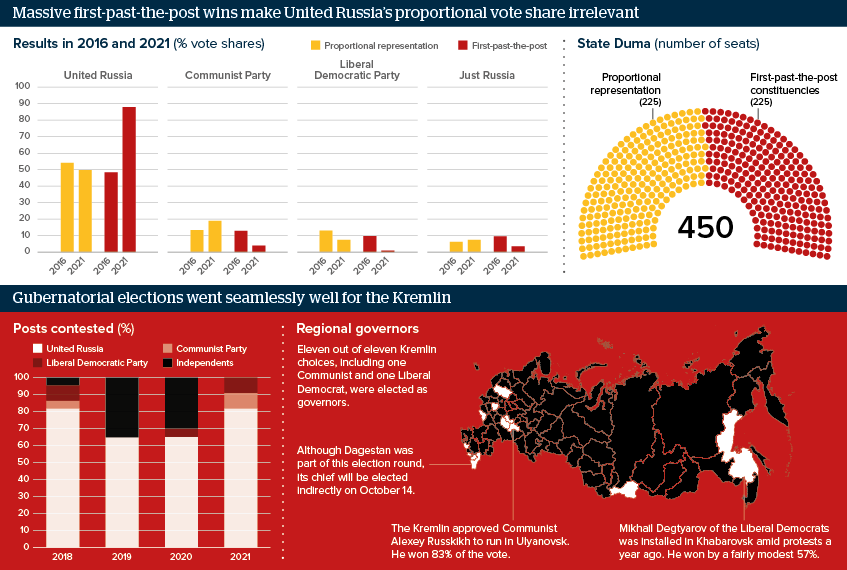No surprises in heavily engineered Russian elections
Parliamentary and regional elections have gone the Kremlin’s way, after risks and obstacles were eliminated
Source: RBC, Vedomosti, Novaya Gazeta, Deutsche Welle
Outlook
United Russia secured 198 of the 225 first-past-the-post State Duma seats, and its 49.8% proportional vote share for the other 225 will take it to around 320, a comfortable super-majority. The Communists lifted their vote share from 13.3% in 2016 to 18.9% but lost heavily in first-past-the-post constituencies. Kremlin-approved candidates won in all eleven regions electing governors.
United Russia generally scores poorly on popularity: its electoral success stems from repression of competitors, outright electoral fraud, opaque innovations such as online voting, a new electorate of Russian passport-holders in eastern Ukraine and President Vladimir Putin’s gift of cash for pensioners, soldiers and police.
Impacts
- The Kremlin has opted for certainty over experimentation with political mechanisms, and relegated United Russia to an arm of the state.
- The authorities will return repeatedly to claims of Western ‘election interference’, based on misreadings of internet freedom.
- On day one, Google and Apple played a part in United Russia’s success by removing ‘smart voting’ apps suggesting alternative candidates.
- Video footage which the electoral authorities cited as proof of election-related ‘fake news’-making was itself faked.
See also
- Prospects for Russian politics in 2022 - Nov 11, 2021
- Russian election meets sole aim of Kremlin validation - Sep 24, 2021
- Communists stand chance of reducing United Russia lead - Sep 17, 2021
- United Russia aims to win despite lacklustre appeal - Sep 6, 2021
- More graphic analysis
